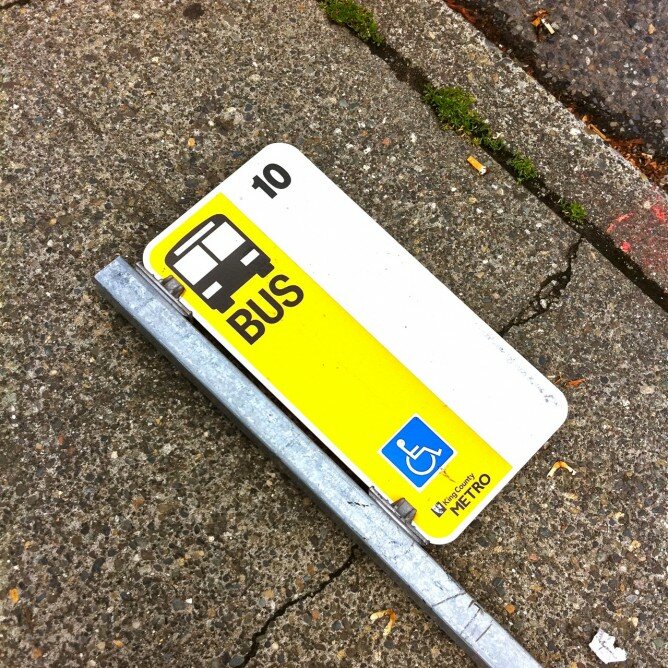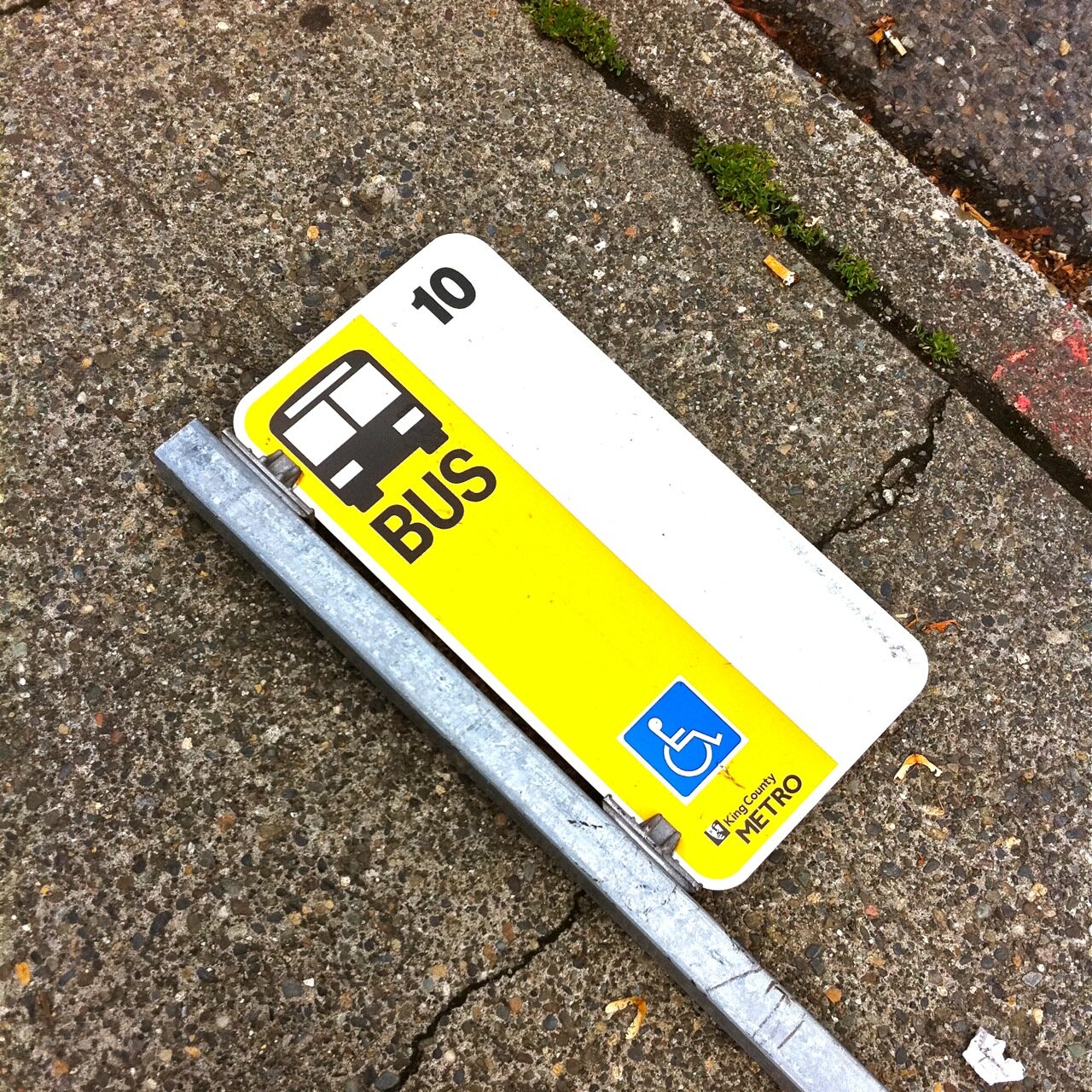
The hundreds of people who have turned out in support of their bus still arriving hasn’t fazed the Seattle Times, which today editorialized against Metro’s Congestion Fee because a) bus drivers are well-known fatcats, and b) “part of ‘sustainable’ means not continually asking for more money.”
Last week, the Times ran an editorial from Michael Ennis of the Washington Policy Center: “Raising King County’s car fee would prolong Metro’s inefficiency.” Though it worked much the same territory, the Times editorial board doesn’t thank him for the rough draft.
Here we see the dangers of copying off another person’s notes, as virtually everything Ennis, and by extension the Times, has argued is wrong, or misstates the facts.
Ennis would like you to believe that a cut of 600,000-hour, 17 percent in Metro service is just trimming the fat: “most of the proposed service changes are a result of recommendations from the King County Regional Transit Task Force (RTTF).” Here’s the RTTF: “Let me be clear that the RTTF did not provide recommendations for reductions in Metro service. ”
As Metro General Manager Kevin Desmond has just written, in his post “Debunking myths about Metro’s efficiency,” “Nowhere does the Transit Strategic Plan or the Regional Transit Task Force recommend cutting 600,000 hours, or 476,000 hours, or even one hour of service for the public.” The recommendations are for King County Metro to reduce service on inefficient or redundant routes and reinvest those hours elsewhere.
Ennis: “passenger demand on Metro’s buses has fallen significantly over the last two years.” What “significant” means may vary, but for March, April, and May 2011, ridership demand exceeds both 2009 and 2010 during the same period.
Also, while we’re on demand effects, it might be significant to note that Metro has raised fares 80 percent in the last four years, though Ennis forgets that. Riders, however, probably do know that they’re paying between $400 to $500 more per year now than four years ago–that may be why they don’t see $20 per year as an outrageous cost.
The Times‘ grasp of economics is sadly not in great shape either. As proof that Metro is inefficient, the Times mentions the top salary that bus drivers can be paid. Not what the average salary is. Not how many bus drivers make the top salary. Not how many drivers are full-time. Not how many bus drivers were beaten unconscious last year. Also–you wouldn’t think you’d need to point this out–an area’s cost of living has a strong effect on what people get paid.
Surprisingly, finding out the real cost associated with Metro’s 2,800 bus drivers requires only that you read Friday’s Times, when Paul J. Bachtel, president and business agent of the Amalgamated Transit Union Local 587, noted that the average bus driver wage in 2009 was $49,520. (Median per capita income in King County is $58,000.)
Writes Bachtel:
Metro has pared its budget repeatedly over successive years and is down to only two weeks of operating reserves. Metro employees have already forestalled service reductions by accepting furlough days, cuts to benefits and cost-of-living adjustments. Bus drivers work nights, weekends, and split shifts spread over 10, 12, even 16 hours, without overtime. Drivers are even sacrificing lunch and bathroom breaks!
UPDATE: Bachtel got back to me with me more data you might find useful. Of those 2,800 drivers, about 1,750 are full-time and are 1,050 part-time. (That will skew the average wage a bit.) Also, shifts can be split without drivers accruing overtime: “Mandatory split shifts can be up to 12 hours in duration for Full-Time and 13 hours in duration for Full-Time. Both Part and Full-Time may agree to work overtime up to 16 hours per day,” writes Bachtel.
The most absurd claim, though, is that Metro is “continually asking for more money,” as if the problem is not that Metro is continually getting less in the first place. “Voters have already given Metro two recent tax increases,” writes Ennis, “in 2000 and 2006.”
As Desmond points out, King County Metro’s financial struggles stem from 1999’s I-695, which left transit dependent solely on sales tax revenues. The 2000 “increase” supplied Metro with less money than it had lost. After the 2006 “increase,” and the recession, “Metro’s revenues dropped twice as much as Transit Now was supposed to raise.”
If buses actually ran on the money supplied by dictionary definitions of the word “increase,” then Metro would be continually seeking “more” money. But they don’t. The fact is that Metro’s funding was gutted a decade ago and it’s never been fixed since.
These are woefully serious economic times, and the decisions we have to make will have real effects. The rationales advanced by the Washington Policy Center and the Seattle Times editorial board are in themselves embarrassing and uncivil, but in context of the public’s reliance on transit, they’re misinformed and misinforming. It tarnishes the Pulitzer a bit when you get bullshit all over it.
